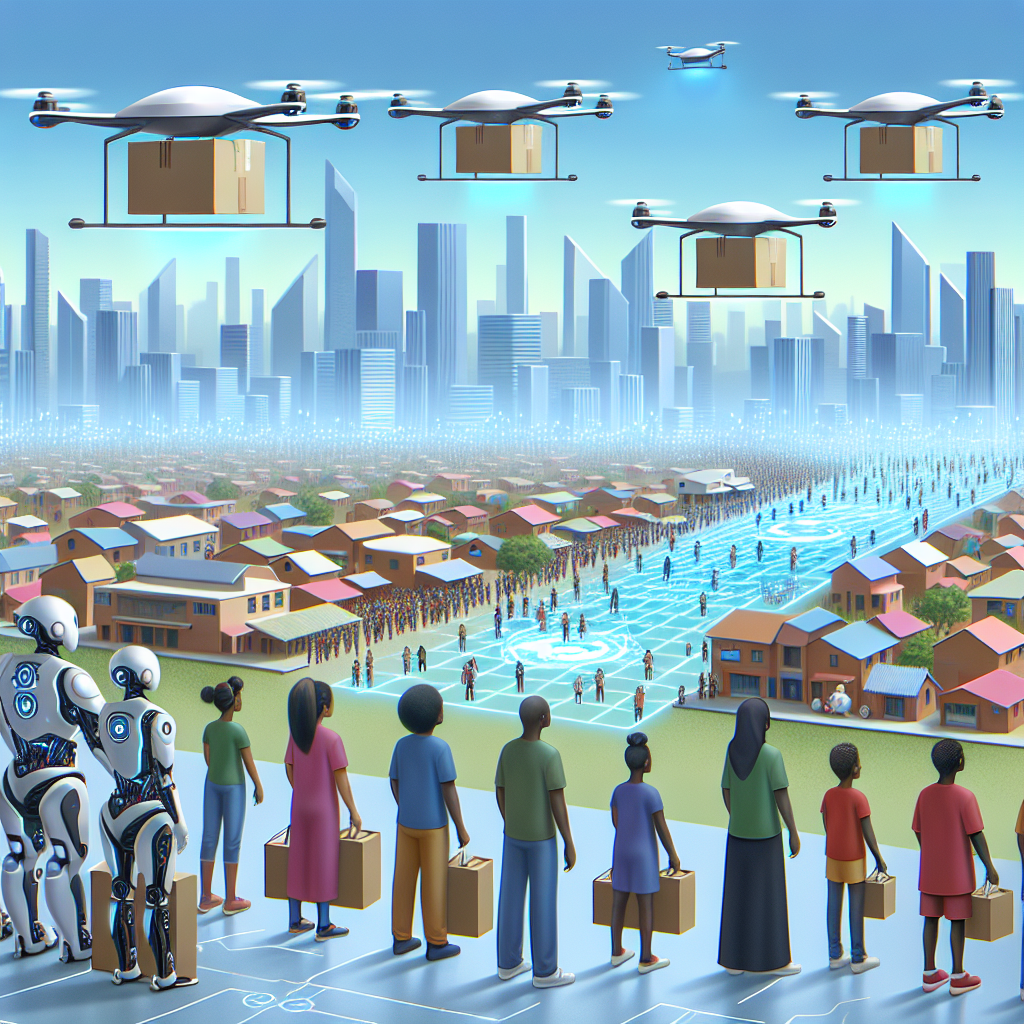The use of artificial intelligence (AI) in humanitarian aid has the potential to revolutionize the way organizations respond to crises and disasters around the world. From predicting natural disasters to optimizing the distribution of aid, AI can help humanitarian organizations work more efficiently and effectively. However, the use of AI in this context also raises important ethical questions that must be addressed to ensure that the technology is used responsibly and ethically.
One of the key ethical considerations when using AI in humanitarian aid is the potential for bias in the algorithms that power the technology. AI systems are only as good as the data they are trained on, and if that data is biased or incomplete, the AI system may produce biased or inaccurate results. For example, if an AI system is trained on historical data that reflects systemic biases against certain groups or populations, the system may perpetuate those biases in its decision-making processes.
Another ethical concern is the potential for AI to infringe on the privacy and autonomy of the individuals affected by humanitarian crises. For example, AI systems that collect and analyze large amounts of data on individuals in crisis situations may raise concerns about surveillance and the potential misuse of that data. Humanitarian organizations must carefully consider how they collect, store, and analyze data in order to protect the privacy and rights of the individuals they are trying to help.
Additionally, there are concerns about the potential for AI to replace human decision-making in humanitarian aid. While AI systems can help organizations make more informed decisions and allocate resources more efficiently, it is important to remember that AI is a tool, not a replacement for human empathy and judgment. Humanitarian aid is ultimately about helping people in need, and AI should be used in a way that complements and enhances the work of human aid workers, rather than replacing them.
Despite these ethical concerns, there are many potential benefits to using AI in humanitarian aid. AI can help organizations respond more quickly and effectively to crises, identify patterns and trends in data that human aid workers may miss, and optimize the allocation of resources to those in need. By harnessing the power of AI, humanitarian organizations have the potential to save more lives and alleviate suffering on a larger scale than ever before.
To ensure that AI is used ethically in humanitarian aid, organizations must prioritize transparency, accountability, and inclusivity in their use of the technology. This includes being transparent about how AI systems are being used, how decisions are being made, and how data is being collected and analyzed. Organizations must also be accountable for the decisions made by AI systems, and be willing to take responsibility for any unintended consequences or harm caused by the technology. Finally, organizations must ensure that the voices and perspectives of the individuals affected by humanitarian crises are included in the design and implementation of AI systems.
In conclusion, the ethics of AI in humanitarian aid are complex and multifaceted, and require careful consideration and attention from organizations working in this space. By prioritizing transparency, accountability, and inclusivity in their use of AI, humanitarian organizations can harness the power of this technology to improve the lives of those affected by crises and disasters around the world.
FAQs:
Q: How can organizations ensure that AI systems are not biased?
A: Organizations can mitigate bias in AI systems by carefully selecting and cleaning their training data, testing the systems for bias before deployment, and regularly monitoring and updating the systems to ensure they are fair and accurate.
Q: How can organizations protect the privacy of individuals in crisis situations when using AI?
A: Organizations can protect the privacy of individuals by anonymizing and encrypting data, obtaining informed consent from individuals before collecting their data, and limiting the use of data to only what is necessary for the humanitarian aid mission.
Q: How can organizations ensure that AI complements rather than replaces human decision-making in humanitarian aid?
A: Organizations can ensure that AI complements human decision-making by involving human aid workers in the design and implementation of AI systems, providing training and support for using AI technology, and prioritizing the well-being and autonomy of the individuals affected by humanitarian crises.

